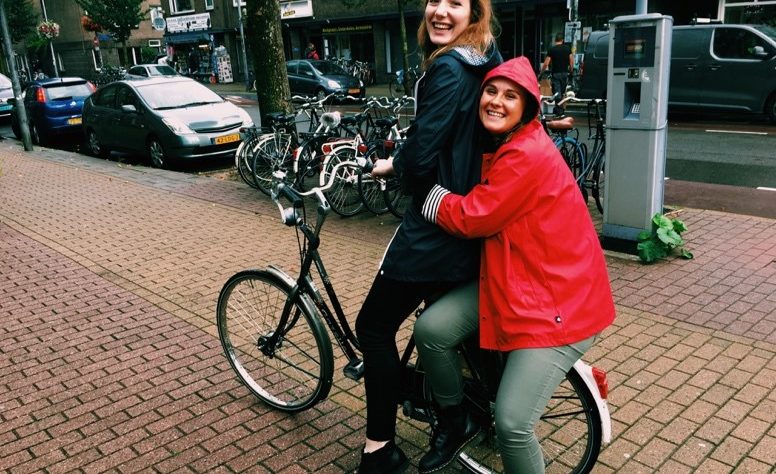Pre-departure:
VISA: Fortunately for me I have a French passport, thus I did not require a Visa to get into the Netherlands and therefore I have no tips to give.
PACKING: I would suggest packing light, and buying all things such as towels, cutlery etc. in your host country. Once you go back home you have so much stuff that you’ve collected over your time abroad which can become problematic.
BANK ACCOUNT: In terms of bank accounts, I already had a French one, which has an IBAN number which is required in Europe, so I didn’t open a Dutch bank account. However, I would suggest opening one if needed, it’s really not difficult and they have options for internationals who are staying for 6 months with no fees (I think). One issue I had is that some places in the Netherlands don’t accept VISA cards such as the main grocery store (Albert Heijn) which was problematic for me, the Dutch use MAESTRO cards, but I often carried cash – if you have a Dutch bank account you get a MAESTRO so I would highly recommend.
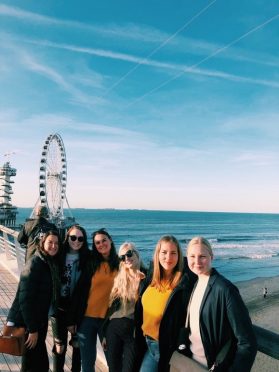
ACCOMODATION: Housing is a big issue in Utrecht, due to the mass amounts of students and internationals. I made sure to do extensive research on options available. I ended up signing up with SSH (short-stay student housing) provided to exchange students and looked at the rooms I potentially wanted online beforehand. The issue here is that many students want the rooms so on the day that you get to choose you must be quick because in about 5 minutes of refreshing the page the rooms were all gone. This was a very stressful moment for me, but I got the room I wanted in the end, you just have to be very diligent and know what you want before sign-up time. This is one of the biggest problems in Utrecht, so the earlier you sort it out the better, since I have friends who had to stay in Hostels for a month before finding a place, or even outside the city which isn’t convenient. I would highly recommend the housing provided by the institution because you will live with other internationals who are all on the same page as you which makes it a less stressful experience. Additionally, the private market for housing is more expensive…
INSURANCE: This is required to sort out before departure, you can do this online with a couple of companies, but the University recommends AON Student Insurance, which is the one I used. It’s affordable and covers a lot ranging from medical issues to loss of items, theft and travel insurance, which is useful because I did a lot of travelling.
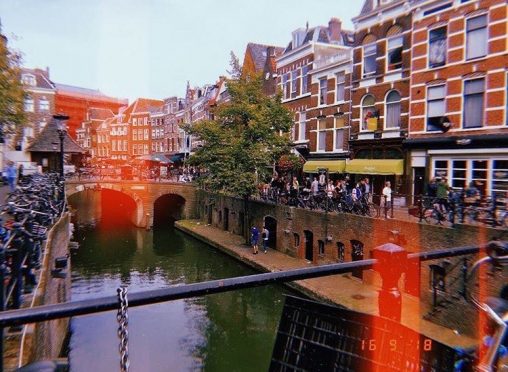
FLIGHT TICKETS: I would recommend booking your flights quite early to reduce costs and also give yourself a few days to arrive before starting classes so that you can settle in and sort out all the admin needed (such as bank accounts and public transport card etc.) and for you to get your bearings and get to know the city. I flew with Air France and they allowed me to take two bags of 23kg – I would highly recommend you have lots of available luggage because when you come back you usually have way more things that you’ve accumulated.
In general, I would just advise to be very thorough before leaving so that you can avoid stress once arrived – if everything is done properly, the transition should be easy.
Experience at Host University:
UTRECHT UNIVERSITY (UU): I spent a semester at this institution (6 months) and absolutely loved it. The semester is divided into two blocks and you take 2 modules per block and write exams at the end of each block. This is different to Stellenbosch where you write all your exams at the end of the semester. The way UU does it is very efficient, its 6 weeks of intense work for the module but once it’s written off it’s done. What I loved about UU compared to SU is that there is much less class – per module you have one 2 hour lecture a week and one 2 hour tutorial a week, this means you do 8 hours of class a week and the rest is ‘free time’, I even had 2 days a week with no class! This is great for internationals as it gave me time to do other things rather than focus all my time on academics (exchange is about more than just academics, you should try see the country if possible). Although I found there was a lot of at-home reading (UU is a research institute), I preferred how they structure the programs and time tables. The modules are intense, and the pace is fast, but it is much more effective because you are only focusing on 2 modules unlike SU. The tutorials are very interesting – the learning space is very conducive to student engagement and participation is encouraged. The classes are full of internationals so it’s very interesting seeing perspectives of others, I really learnt a lot in my classes just because of the diversity. The exams I wrote were digital which was a very positive experience for me. The campus is also very beautiful with lots of student restaurants, study areas and multiple libraries spread over the city.
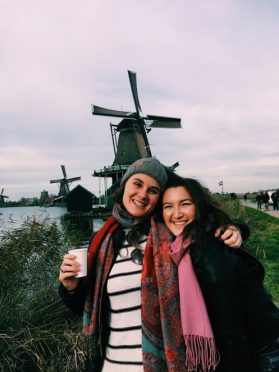
I did a lot of travelling during my exchange from semester, and this is an advantage of being in the heart of Europe. It’s very easy to find cheap flights or even busses to several different destinations and cultures – I strongly advise to do this! Additionally, I was an ESN (Erasmus student network) member, which costs 5 EURO, and you get 15% off Ryanair flights! This network also organizes many events and weekends away, such as Oktoberfest in Munich, Germany. I highly recommend joining the network as it’s also an opportunity to meet other internationals and build connections and friendships with people from other cultures – trust me, you learn a lot about others as well as yourself! I also strongly recommend attending introduction/orientation week, it helps you get your bearings of the city as well as meet other exchange students.
I honestly had the best 6 months of my life – I lived with 27 other internationals and a lot of them have become best friends for life. I learnt so much from them, and by living with so many different people to yourself you definitely grow in many aspects. My advice is don’t be scared to speak to people, most of the internationals are nervous but give it a few weeks and don’t give up, the connections will happen naturally, try new things – cherish this time, it really goes by in the blink of an eye.
Return to Stellenbosch:
The return to South Africa has been extremely challenging for me for an array of reasons – first and foremost, I have made amazing friends that all live scattered over Europe and the hardest thing was saying goodbye and not knowing when I will get to see them again – this was the toughest part of my exchange experience because I got so close to the people I lived with and it really was 6 months of easy care-free living where every single day would be a new adventure of exploring. Thus, the transition back into so-called ‘reality’ has been difficult – this isn’t to say that I am unhappy to be back into my ‘sunny’ South African lifestyle. Secondly, I am very fond of how UU’s academic program is set with less class, more intense focus on 2 modules and very dynamic research approaches, therefore I have to get back into the Stellenbosch routine.
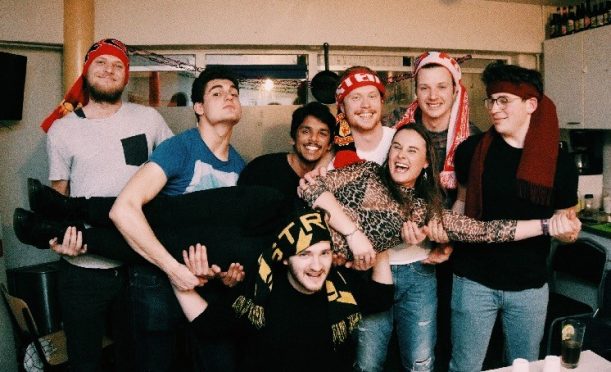
Coming back to your home friends is always nice and really was a heart-warming experience for me and being abroad really teaches you who the important people are in your life which was an extremely valuable lesson for me.
Although it isn’t my first time being abroad it was my first actually living there for a couple months – and it changed some of my perspectives on South Africa. By speaking to others from different countries you learn about so many differences that occur, especially with a developing country such as South Africa and a developed one such as the Netherlands. SA has a lot of room for improvement in term of transport infrastructure for example, or general safety and crime, however being abroad has led me to appreciate SA even more. It’s a beautiful country with such a wide variety of nature which a country such as Netherlands lacks – there’s something magical about Africa. Speaking about South Africa to my friends and with them asking me stacks of questions I actually realized how divided South Africa really still is, in Netherlands I never experienced once a feeling of inequality in terms of color, gender, abilities etc. This has really inspired me to try improving my actions towards others and be more accepting, kind and tolerating, so I really did learn a lot.
In terms of my future, I really enjoyed the Netherlands as a whole, and I am actually thinking of doing my masters there – or go away somewhere else and experience this all over again with new people in a new place and live a totally different life. It really opened my eyes to how big the world is, and how much there is to see and why not do it now, there’s nothing holding me back!

